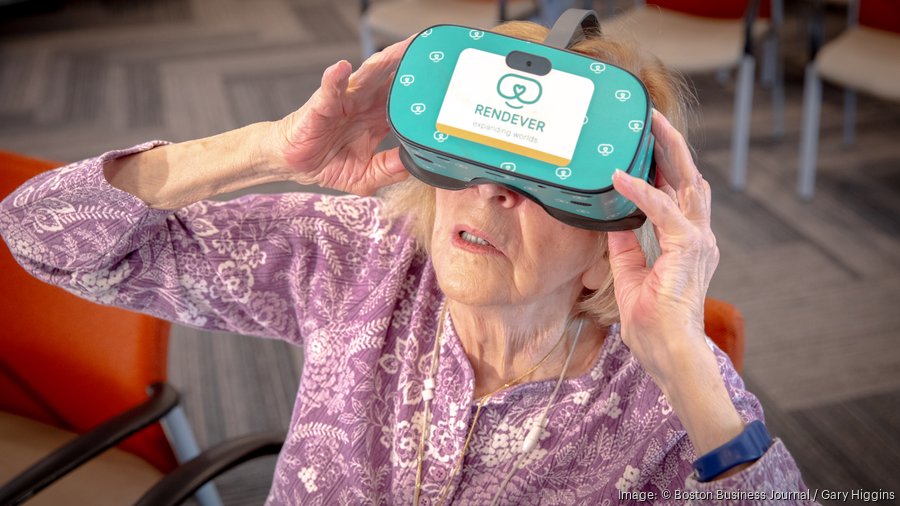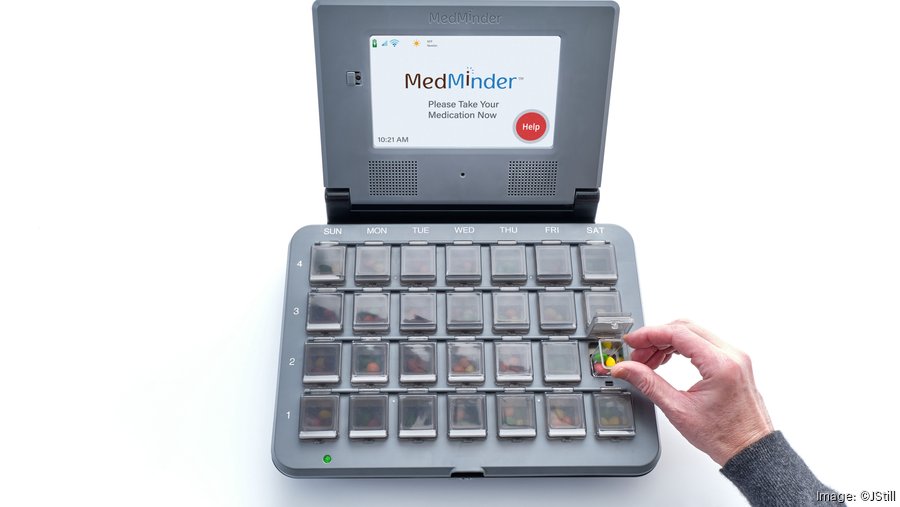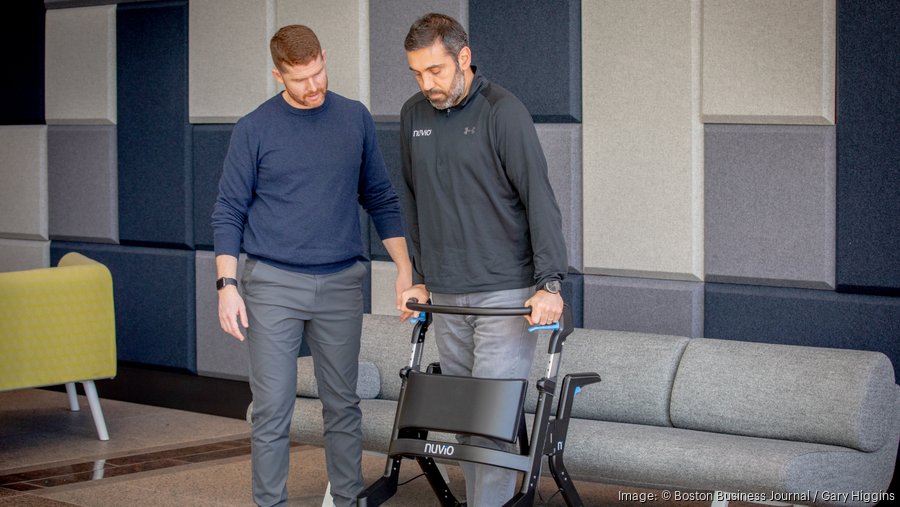Listen to this article 4 min
This is part of a series about how the aging population in Massachusetts will affect industries from real estate to healthcare to technology.
Andy Miller, senior vice president for innovation at AARP, believes that any tech company that isn’t focused on the market of older Americans is missing a huge financial opportunity.
The fastest-growing group of Americans in the U.S. are those over 80, Miller said, and there are 12,000 people turning 65 every day in the U.S.
AARP, the nonprofit organization that advocates for Americans age 50 and older, has its own hub for startups called the AgeTech Collaborative. It has defined “agetech” as a new category to include “anything at the intersection of longevity and technology that will help us age better,” Miller said.
Out of the 70 ventures in the AgeTech Collaborative’s portfolio, many can also be categorized as healthtech or fintech — areas where Boston is already a frontrunner.
“Boston’s probably the biggest city with the most startups that we have,” said Miller, who is 53 and lives in Natick. “Right there with New York or San Francisco.”
We recently spoke with three agetech companies based in Massachusetts that are seeking to use tech to improve the life of the elderly.
Rendever: ‘Virtual reality for seniors’
On a recent Thursday morning, Kasey Larsen made travel plans with 10 residents of The Falls at Cordingly Dam’s assisted living facility in Newton. The group only had an hour before lunch, so all they could fit into the schedule were stops in Venice, Florence, Dublin and Rome, plus a tour of the Galápagos Islands.
Larsen, 32, a programming manager at the facility, helped six residents put on individual virtual-reality headsets, while the others watched the big screen behind her. Then she pressed a button on her tablet, and the group set off.

Rendever, a Somerville-based startup with 30 workers, made the itinerary possible. The company’s technology is in use in about 600 North American communities, mostly among hospices and senior living facilities. It markets its VR tools as a way for older adults to share experiences with others, and as a cure for loneliness.
“Typically, what we see in our communities, there’s always early adopters that raise their hand and they’re down to try absolutely anything,” said Rendever CEO Kyle Rand. “Especially over the pandemic, we saw a really big uptick in the number of hospice groups that were looking to use this technology.”
Rand, 32, is a neuroscientist and biomedical engineer by training. He volunteered in senior living communities while growing up in upstate New York, and the experience of losing both his grandmothers while in college caused him to reflect on the challenges of the aging process. That led him to start Rendever in 2016.
Rendever sells its lowest package — two headsets and a tablet — at $1,000, plus a monthly subscription fee to access content on the cloud.
New content is added every week and comes from brand partnerships as well as licensing deals with 360 creators around the world, Rand said.
Nuvio Mobility: ‘A PT in your walker’
While spending time in rural New Hampshire at the onset of the pandemic, Matt Cumella got serious about solving a problem that frustrated him since becoming a physical therapist in 2014.
At inpatient rehabilitation clinics, he would use sophisticated technology such as robotic exoskeletons to help improve the mobility of his elderly patients. But at the end of sessions, he would send his patients home with “a $50 walker,” which he said was “as dated as you would think.”
“Walkers, canes, crutches — an environment of equipment that hasn’t really changed a lot,” he said. “The mobility tech market is missing a focus on safe and smart everyday devices.”
Cumella, 36, started building prototypes of a new kind of smart walker in his garage. After bringing Toronto-based product development firm Inertia onboard, and getting much feedback from engineers, the base model of Nuvio Mobility’s walker was born.
The device is slated to go into production in the next months for use in rehab hospitals and senior living settings, with $750 as the manufacturer’s suggested price.
Cumella said that the Nuvio One, as it’s called, works better than traditional walkers in two situations where patients are at the greatest risk of falling: Getting out of a chair, or reaching objects on a countertop. The walker is also designed to keep patients’ hands close to hips, which helps both stability and posture.
The Nuvio One’s successor, Nuvio Pro, is currently in development to hit the market next year. It will feature sensors that can communicate via software. Through those sensors, the device will capture data on whether patients are leaning to one side, or what their posture looks like.
“I like to call it ‘A PT in your walker,’” Cumella said.
MedMinder: ‘Like a sentinel’
Older adults are the largest population served by MedMinder, a maker of pill dispensers automating the release of medications. The Norwood-based company that launched in 2017 employs a total of 150 workers, including pharmacy employees, and has raised a total of $75 million.

For CEO Troy Hilsenroth, the device fits nicely into one of the biggest macro-trends he’s observed in healthcare: the ability to provide high-quality care in the low-cost environment of older adults’ homes, where they typically feel more comfortable and independent.
MedMinder’s direct sales to consumers account for just 5% of its business, though. The bulk of revenue comes from payers, insurance companies, healthcare systems and providers. To such customers, MedMinder bills itself as a way to efficiently manage large populations of patients.
“The provider wins. Most importantly, the patient wins,” said Hilsenroth, 54.
MedMinder touts its own pharmacy services as its key differentiator from other retail pharmacies. Patients can opt to receive a pre-filled tray of their medications from MedMinder’s pharmacy, located under the same roof as the company’s headquarters.
The tech itself, Hilsenroth said, also generates unique data on patients’ meds consumption. Older adults go to the device up to four days a day, and their loved ones get notifications (whose frequency can be customized) if patients don’t take their meds.
“With the elderly, this is like a window into their lives,” he said. “It’s like a sentinel; When something starts going wrong, you know about it early.”
2023 Massachusetts office exec.-search revenue
| Rank | Prior Rank | Firm/Prior rank (*unranked in 2023)/ |
|---|---|---|
1 | 1 | Isaacson, Miller |
2 | 3 | Logix Inc. |
3 | 2 | PharmaLogics Recruiting |
